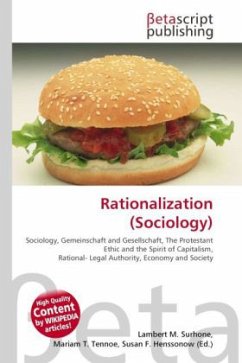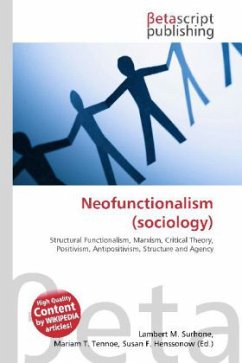
Sociology of Knowledge
Versandkostenfrei!
Versandfertig in 6-10 Tagen
26,99 €
inkl. MwSt.

PAYBACK Punkte
13 °P sammeln!
High Quality Content by WIKIPEDIA articles! The Sociology of knowledge is the study of the relationship between human thought and the social context within which it arises, and of the effects prevailing ideas have on societies. (See also: sociology of scientific knowledge) The term first came into widespread use in the 1920s, when a number of German-speaking sociologists, most notably Max Scheler, and Karl Mannheim, wrote extensively on it. With the dominance of functionalism through the middle years of the 20th century, the sociology of knowledge tended to remain on the periphery of mainstrea...
High Quality Content by WIKIPEDIA articles! The Sociology of knowledge is the study of the relationship between human thought and the social context within which it arises, and of the effects prevailing ideas have on societies. (See also: sociology of scientific knowledge) The term first came into widespread use in the 1920s, when a number of German-speaking sociologists, most notably Max Scheler, and Karl Mannheim, wrote extensively on it. With the dominance of functionalism through the middle years of the 20th century, the sociology of knowledge tended to remain on the periphery of mainstream sociological thought. It was largely reinvented and applied much more closely to everyday life in the 1960s, particularly by Peter L. Berger and Thomas Luckmann in The Social Construction of Reality (1966) and is still central for methods dealing with qualitative understanding of human society (compare socially constructed reality). The 'genealogical' and 'archaeological' studies of MichelFoucault are of considerable contemporary influence.












